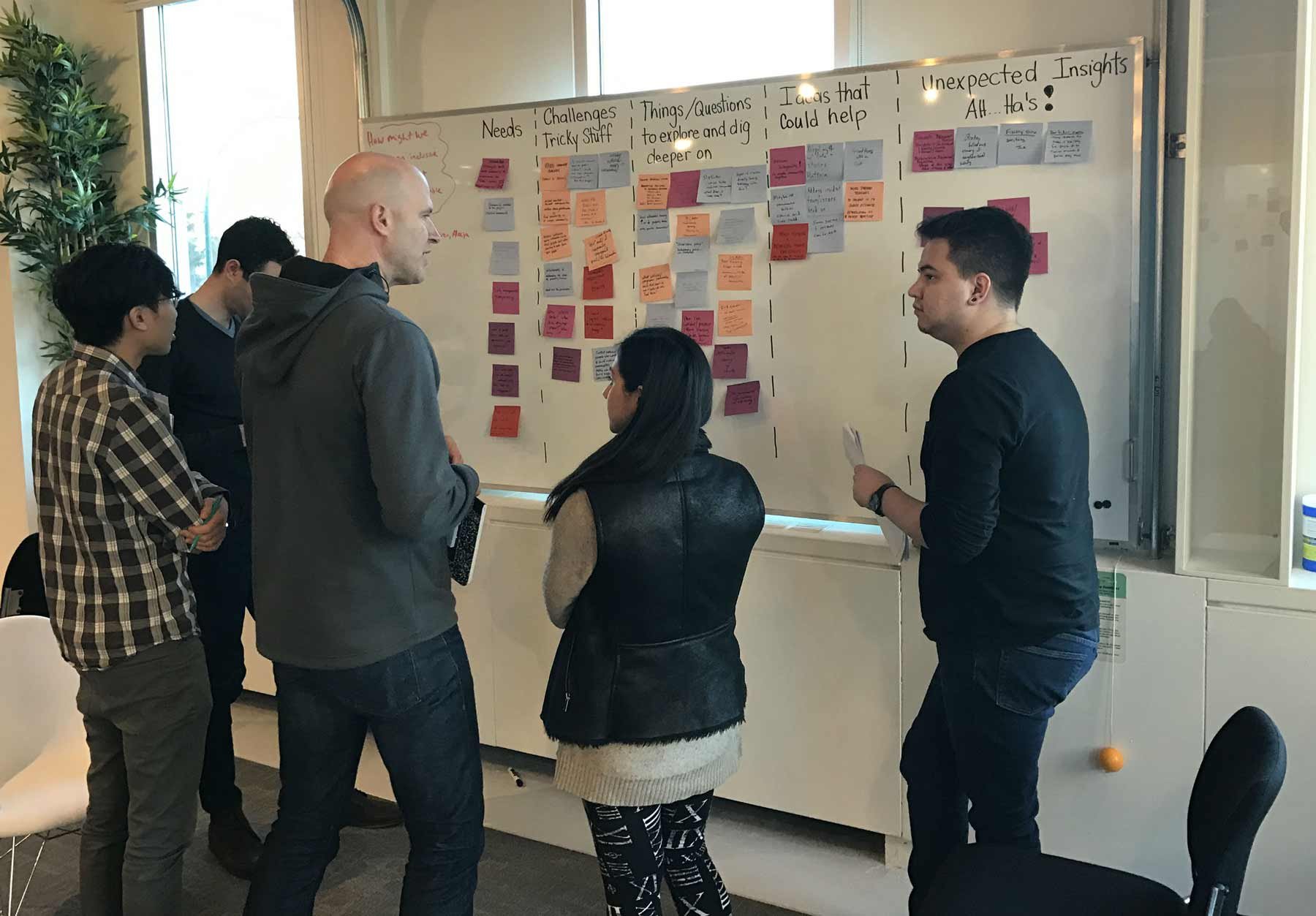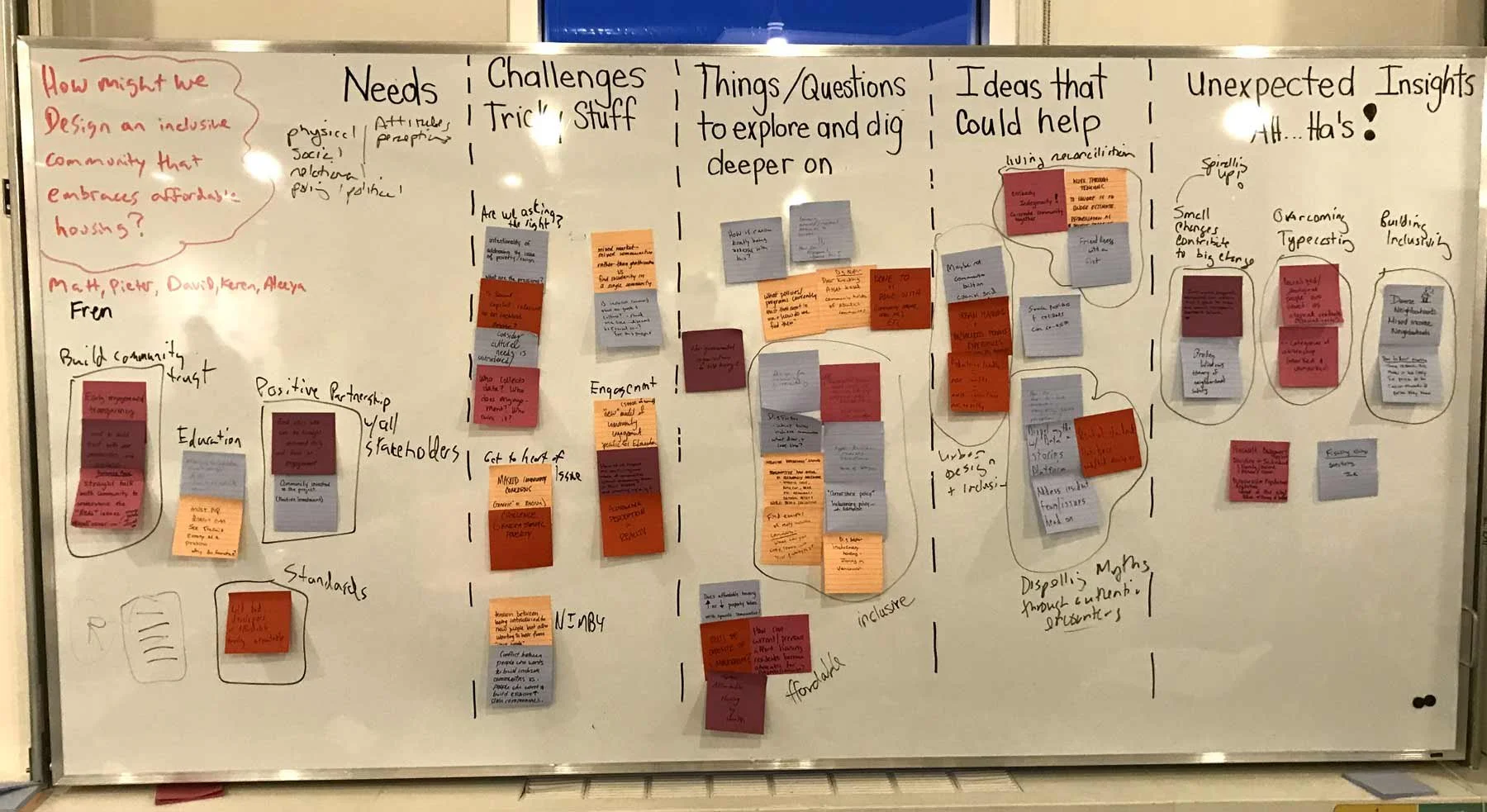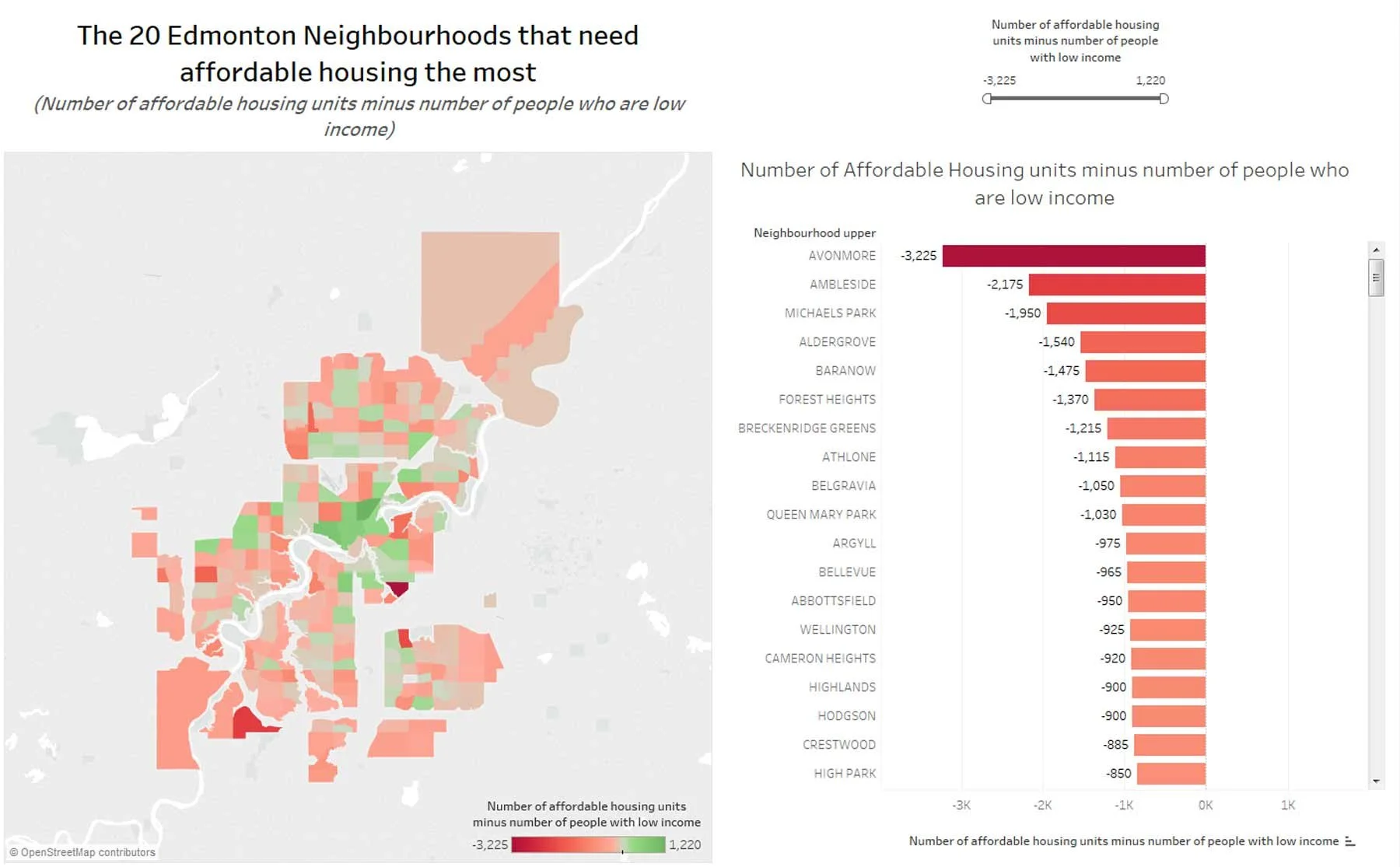Shift Lab Prototype: Journey to YIMBY
Shift Lab description
Shift Lab is a social innovation lab which brings together people from different sectors and all corners of the region to address poverty and racism. For months, the group met regularly to share their knowledge, undertake research, and create prototypes based on Edmonton’s needs. The group focused on the nexus of poverty and racism in housing.
Prototype name
Prototype proposal
The Shift Lab Core Team broke into three prototype working groups. Our group proposed gathering lessons from successful affordable housing projects and those which faced extreme opposition in Edmonton to create a comprehensive guide for nonprofits who want to develop and sustain affordable housing projects for racialized people throughout the city of Edmonton. This guide will demonstrate how to create ideal conditions for an affordable housing project from before the plans are drawn to years after the housing is complete. We will use data, empathy building, and transparency to enable nonprofits to succeed in building and sustaining affordable housing.
Core Assumptions of Prototype
Our prototype has three assumptions: first, that affordable housing is a key lever to address issues related to poverty; secondly, that relationship building will help overcome community resistance, but, finally, that community resistance is sometimes rooted in racism.
This prototype is based on our own experiences, research on effective housing practices, and key informant interviews. Particularly, we found that organizations which had more success in building affordable housing had good community engagement. We believe this is essential because there’s more potential to change people’s opinions on issues such as affordable housing and poverty when there’s a real relationship that exists. Our research showed that relationships between the community and affordable housing developers changed over time from antagonistic to engaged when there was the perception of real community engagement by the affordable housing builder. If community organizations can do front-end work well, it ensures success at the back-end. Our interviews affirm our assumption that projects encountered push-back because the community was surprised by affordable housing and felt they had no input into the process.
However, relationship building isn’t always enough to overcome all community resistance and does not explain the history of mixed success Edmonton has had with affordable housing projects, despite the need for such housing. Our research found that sometimes “I don’t want affordable housing in my neighbourhood” is a code for racism.
Prototype
Our prototype wrestled with the question of how to:
Change attitudes about affordable housing and create more positive experiences at a community level
Do meaningful and authentic community engagement
Change attitudes to disrupt myths of the impacts of affordable housing
Make better use of data to help organizations interested in building affordable housing find locations that potentially work and have a need
Early planning stages of Journey to YIMBY
Process
The prototyping process drew on the skills and experiences of our team members. The result, in our opinion, was greater than the sum of its parts. We were able to combine our knowledge of public participation, analytics, designing online user interfaces, and experience on the ground with affordable housing. The human-centred design axiom of “show, don’t tell” was valuable in pushing us to produce something -- a mock-up of the user interface and key components of the prototype.
We had a few surprises along the way. Almost everyone who assessed our prototype stressed what we had already gleaned during our research and prototyping: if we are going to change perceptions of affordable housing, the solution requires a combination of data-driven and narrative-driven processes to engage both the head and the heart. We knew this was important, and even though reviewers were impressed by the analytical approach to affordable housing discussion in Edmonton, everyone agreed that stories and real-life connections are what changes attitudes.
YIMBY
(For an interactive version of this data, click here)
During our demos of the prototype to partners and the community, we were also encouraged to stay away from official certifications and focus more on the sharing of best practice. Initially, we thought a certification process would help ensure adherence and build community trust, but we were encouraged to focus on making the guide as useful and informative as possible, allowing agencies to follow the suggestions without the need for additional administrative requirements.
Next Steps
We could further dig into how organizations can do public engagement in a way that’s more focused on building relationships and creating a space for more authentic stories to be shared. The potential impact is very large because if organizations and the City did better engagement work, it would improve the issues related to NIMBYism, which would help address the affordable housing shortage in Edmonton. Also, if we helped the City create a process of engaging citizens effectively and authentically in affordable housing, this could have ripple effects on other matters of community trust in local government and civic participation.
Consider what partnerships with nonprofit organizations and developers might look like, so as to acknowledge ongoing work instead of ‘recreating the wheel’ when it comes to successful and appropriate community engagement.
Engage high-level community leaders such as the Edmonton Federation of Community Leagues.
Seek more perspectives from those who would benefit from affordable housing and ensure that methods of engaging community include stories of lived experience.
Limitations
We realize that change takes time. Our prototype is not addressing long-term structural challenges, such as funding for affordable housing or legislation to mandate affordable housing in areas throughout the city. This prototype assumes that the rules to build affordable housing in Edmonton will remain the same; however, this might not be the case as recent updates to the Municipal Government Act in Alberta give cities greater power to mandate affordable housing. This prototype also assumes that funding for affordable housing in Edmonton will remain the same; however, a recent funding announcement by the Alberta provincial government and the upcoming release of the Government of Canada’s National Housing Strategy may challenge this assumption. We have yet to explore this new reality.
Written by David Rauch, Pieter de Vos, Matt Ward, and Fren Mah.
Journey to YIMBY graphic by Molly McMahon.



